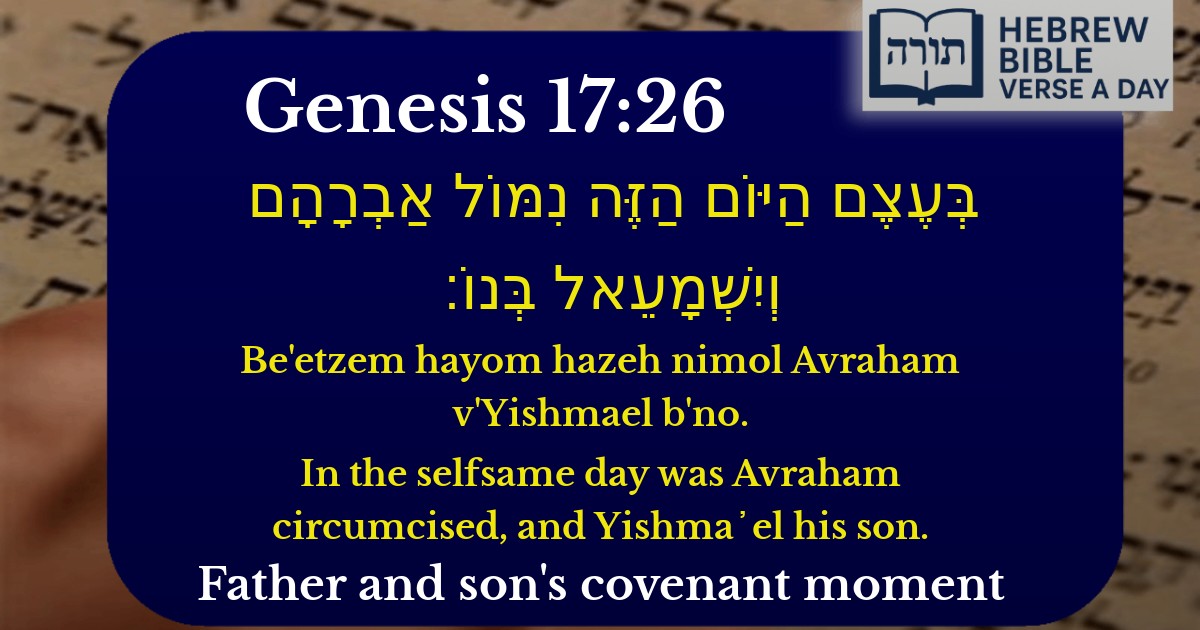Join Our Newsletter To Be Informed When New Videos Are Posted
Join the thousands of fellow Studends who rely on our videos to learn how to read the bible in Hebrew for free!
Hebrew Text
בְּעֶצֶם הַיּוֹם הַזֶּה נִמּוֹל אַבְרָהָם וְיִשְׁמָעֵאל בְּנוֹ׃
English Translation
In the selfsame day was Avraham circumcised, and Yishma᾽el his son.
Transliteration
Be'etzem hayom hazeh nimol Avraham v'Yishmael b'no.
Hebrew Leining Text
בְּעֶ֙צֶם֙ הַיּ֣וֹם הַזֶּ֔ה נִמּ֖וֹל אַבְרָהָ֑ם וְיִשְׁמָעֵ֖אל בְּנֽוֹ׃
בְּעֶ֙צֶם֙ הַיּ֣וֹם הַזֶּ֔ה נִמּ֖וֹל אַבְרָהָ֑ם וְיִשְׁמָעֵ֖אל בְּנֽוֹ׃
🎵 Listen to leining
Parasha Commentary
📚 Talmud Citations
This verse is quoted in the Talmud.
📖 Megillah 16b
The verse is referenced in a discussion about the timing of Abraham's circumcision and its significance.
📖 Nedarim 32a
The verse is cited in a discussion about the merits of Abraham and the covenant of circumcision.


The Timing of Avraham and Yishmael's Circumcision
The verse states that Avraham and his son Yishmael were circumcised "בְּעֶצֶם הַיּוֹם הַזֶּה" ("in the selfsame day"). Rashi (Bereishit 17:26) explains that this phrase emphasizes their immediate fulfillment of the mitzvah—Avraham did not delay performing the circumcision even for a single day after receiving the commandment. This demonstrates his great zeal (זריזות) in serving Hashem.
Avraham's Circumcision at an Advanced Age
According to the Midrash (Bereishit Rabbah 47:9), Avraham was 99 years old when he underwent circumcision, which required tremendous faith and devotion. The Rambam (Hilchot Milah 3:8) highlights this as an example of Avraham's unwavering commitment to fulfilling Hashem's commandments despite physical challenges.
The Inclusion of Yishmael
The Talmud (Sanhedrin 59b) notes that Yishmael, though not part of the covenant of Yitzchak, was nevertheless circumcised because he was Avraham's son. The Ramban (Bereishit 17:26) explains that this was part of Avraham's household entering into a state of purity, even though Yishmael's descendants would not inherit the spiritual legacy of Yitzchak.
Symbolism of the "Selfsame Day"